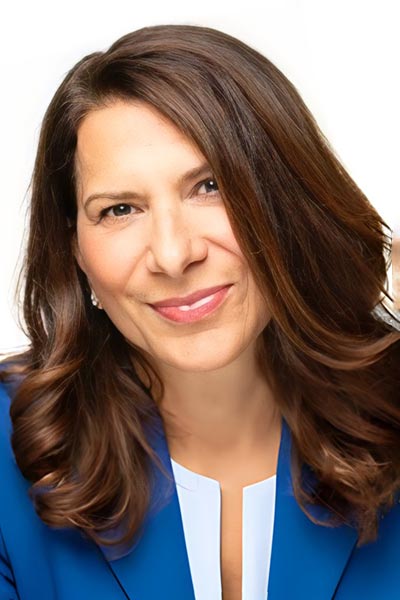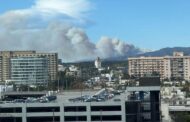
Editor’s Note: The following essay first appeared on Terri Ann DiJulio’s blog. It is reprinted here with her permission.
I am a lung cancer survivor …
I am also an outspoken advocate in the lung cancer community.
Because of this, many of you may already know that I have been diagnosed with early-stage lung cancer three separate times during a 17-year period.
What is the first question many people want to ask when learning someone has lung cancer? Come on, ask me… I know what it is.
Let’s take a minute and talk about the elephant in the room. Let me be candid here—I don’t really want to talk about it; I feel like we have to talk about it and talk about it as if our lives depend on it—because they do!
The question many of you want to ask is “Terri Ann, did you smoke?”
I desperately want to be able to answer that question with a resounding, “No, I did not smoke.”
But I can’t.
Until recently, whenever I shared my story, I would skirt around the smoking question. When the topic came up, I would share how there are six of us in my family who were diagnosed with lung cancer, and we all had varying relationships with tobacco. Some of us smoked and some of us did not. Yes, that felt like a good way to not actually answer the question. I’ll go with that. Why? Because I didn’t want to be judged.
Recently, while attending Escape to Thrive, a cancer advocacy leadership conference, I learned just how triggering this topic is for me. During a workshop on stigma, guilt, and grief, I stood up and shared how the stigma of smoking has had a monumental impact on the lung cancer community.
With the microphone in my hand, I shared a few facts. Facts like: Roughly 25% of all newly diagnosed cases of lung cancer are people who never smoked and that 80% of people who smoke never get lung cancer, yet screening for lung cancer is tied to one’s smoking history. I continued by saying that yes, of course tobacco is a risk factor, but so are radon, pollution, asbestos, other environmental hazards, age, and family history.
Because the current screening guidelines are tied to tobacco use, some people never have a chance to be diagnosed at an early stage—people like my friends Elizabeth, Kirk, and Liz, who are living with Stage 4 lung cancer. Nor would my friends Linnea, Gina, and countless others, including my mother and uncle, who lost their lives to this disease. Because the guidelines require a certain level of tobacco use, I did not qualify for screening either; my lung cancer was discovered “accidentally.”
Before I handed the microphone to the next person, I talked about my own history with tobacco, which is something I rarely share. The last words out of my mouth while the microphone was leaving my hand were, “I didn’t deserve lung cancer.” And with that sentence, my voice cracked, and the tears rolled down my face.
“I have known Terri Ann DiJulio for the past 5 years, first and foremost as a patient, and most recently as a forceful patient advocate. Her remarkable piece on the stigma of the lung cancer diagnosis is both eloquent and timely, and it exudes the energy and sensitivity she brings to all her interactions.”
—Corey Langer, MD, FACP
Editor, ILCN
Author Brené Brown once said “shame cannot survive being spoken.” Now, I know this to be true. It wasn’t until that moment that I realized just how much shame I carried because of my “relationship” with tobacco. I spoke my shame at that conference, and it did not survive. I released it. I am now ready to own my whole story; a story that includes a 15-year-old girl who picked up her first cigarette.
Why is it important for me to share this story?
I thought long and hard about my experience at the conference; it was really nagging me.
Holy cow, is shame getting in the way of people getting screened? Because of this stigma, are people holding back from getting care? Are they afraid of being judged? Afraid of the looks and comments they may get—like they deserved it if screening discovers they have lung cancer?
What we need is less judgment and more people getting screened, being diagnosed early, and treated with compassion. Long-term survival and quality of life improves with early diagnosis when treatment options can save more lives. The current screening guidelines are tied to smoking, and shame is tied to smoking—so it feels like we may be dealing with a much bigger issue here!
Now I have learned to be outspoken, and I share my story with anyone who will listen. If I didn’t realize until recently the personal shame I carried, imagine how someone a bit shy may feel. Perhaps they really don’t want to talk about it. Perhaps they don’t want to admit it to anyone—not even their doctor who can help them get screened for lung cancer. Perhaps the stigma surrounding smoking is hurting all of us, whether someone has a tobacco history or not. The truth is: Lung cancer can affect all of us. Tobacco use plays a role, but it is also not the full story.
Brené Brown also said, “shame cannot survive empathy.” What if addressing the stigma and shame associated with tobacco use and addiction is met with empathy? Can empathy lead to more people getting screened, more people asking for help with smoking cessation? By opening the conversation in a compassionate way, can we perhaps save more lives? What if destigmatizing lung cancer gets us closer to screening guidelines that are open to everyone—regardless of risk factors? What if people diagnosed with this disease are treated with more compassion and dignity?
The reality is that lung cancer kills more people than any other cancer, so it is clearly not all tied to tobacco use.
Having said all of this, I do know why you wanted to ask the question: “Terri Ann, did you smoke?” Because if I said yes, I smoked, and you didn’t smoke, then you could put your mind at ease and tell yourself that you won’t get lung cancer. My hope is that now, after reading this, you know that is just not true!
Anyone can get lung cancer. So let’s work together to reduce stigma and shame and bring more empathy to the conversation. Perhaps we can impact change by simply recreating the narrative, because none of us know if—or when—lung cancer will impact our lives.
I finally feel ready to talk about this. Are you ready to join me?





